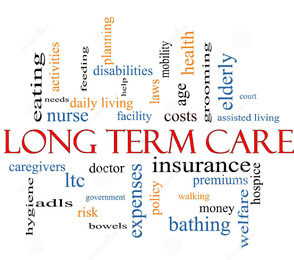When families are faced with a loved one needing long term care they are usually highly emotional, extremely stressed and feeling quite vulnerable. Those feelings are often compounded by the way they are treated by the systems they face to secure care; those involved in the processes; and also a lack of accurate information by the health-care professionals involved. At these times families need help and support more than ever before!
Unfortunately many legal and financial professionals are equally confused by the system which doesn’t help the situation but there are specialists out there who can help and guide you through the system. Basically, the rules surrounding care are imprecise with important sections often prefixed with the word 'should' rather than 'must' and that can give the appearance at assessment that the rules have been torn up. They haven’t! The imprecise wording of care legislation and statutory guidance allows for an ever widening interpretation of those rules by both the NHS and local authorities which can make it ever more important to seek professional help.
As a starting point, there are 4 types of care:
- NHS continuing healthcare - this is totally free of charge and can be provided at a nursing home or within a person’s own home.
- NHS mental health care - again free of charge and provided at a secure establishment.
- A joint package of care - the NHS may pay £187.60 funded nursing care (FNC) to a care home to buy in nursing. The rest of the care package is considered to be social care
- Social care - this is not free.
Thousands of families every year wrongly pay care fees for loved-ones, mainly due to their own pre-conceived ideas. They believe that because their loved one owns property or has savings they must pay and often they fail to contact the local authority for an assessment, or they choose a light touch assessment. They also fail to seek independent financial or legal advice, only considering this once they see funds dwindling.
Some examples of how assessment and payment of care fees can go wrong:
- Clients and their families provide information based on the couples's joint financial situation rather than that of the person requiring care
- Local Authorities continue to take top-up care payments even once the client's savings have fallen below the threshold
- Clients take equity release loans which then count as their estate and could require care fees to be paid. This can also cause long term issues for the partner left behind who may want to downsize their home but no longer has the money to repay the equity loan as it has been used up paying care fees. Funds which are not drawn down on equity release, will be assessed as 'notional' savings and will be available for care fee calculations
- Partners are often asked to pay a deferred payment arrangement (DPA) with regard to the property but quite often the family home can be disregarded if there is a qualifying relative who continues to live in the property.
- Any private pensions should be allocated for 50% to the spouse if they remain at the family home and not considered as a 100% calculation for fee assessment
This is clearly a mine field and quite complex to navigate. Care must also be taken not to get caught in deliberate deprivation of assets - but that is a post for another day.




